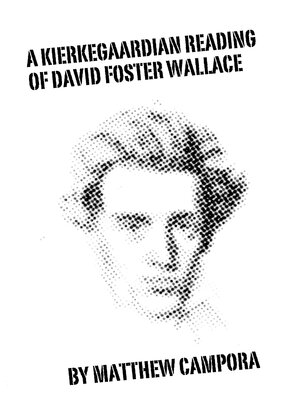
Sign up to save your library
With an OverDrive account, you can save your favorite libraries for at-a-glance information about availability. Find out more about OverDrive accounts.
Find this title in Libby, the library reading app by OverDrive.



Search for a digital library with this title
Title found at these libraries:
| Library Name | Distance |
|---|---|
| Loading... |
This work explores the fiction of David Foster Wallace through frameworks developed by nineteenth century Danish philosopher Soren Kierkegaard to foreground the similarities in their approaches to the problem of irony, as well as in their strategies for overcoming the cynicism they believe it often produces. Kierkegaard's thesis, "The Concept of Irony: With Continual Reference to Socrates" is the focal point for the discussion of irony in this paper, where it will be argued that Wallace, like Kierkegaard, wrote inventive texts, theorized irony and its limitations, and sought ways beyond it. Wallace's fiction will be shown to offer a relentlessly sophisticated critique of contemporary American culture, yet also to offer a compassionate attempt to construct something redemptive to replace the emptiness it so deftly describes. To do this, it will consider Wallace's "Infinite Jest" and two collections of his short fiction - "Brief Interviews With Hideous Men" and "Oblivion".







